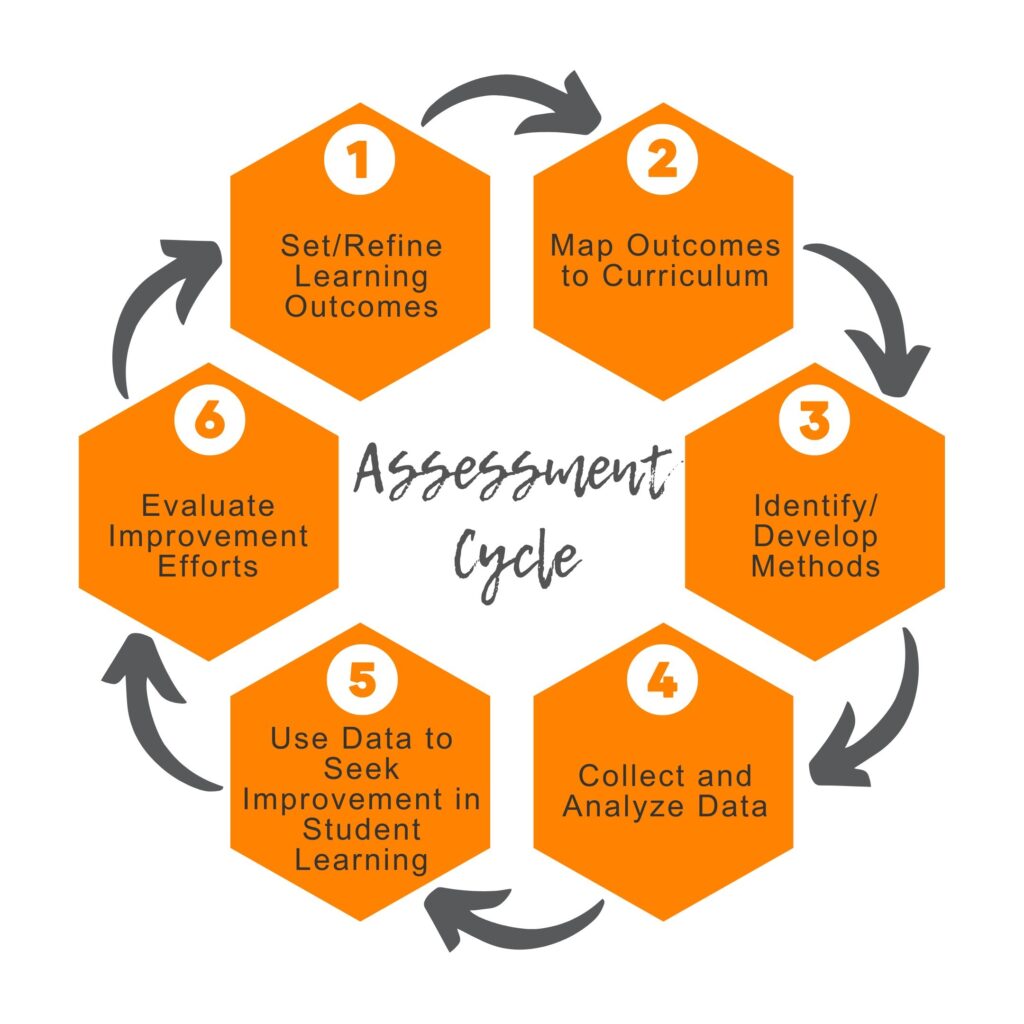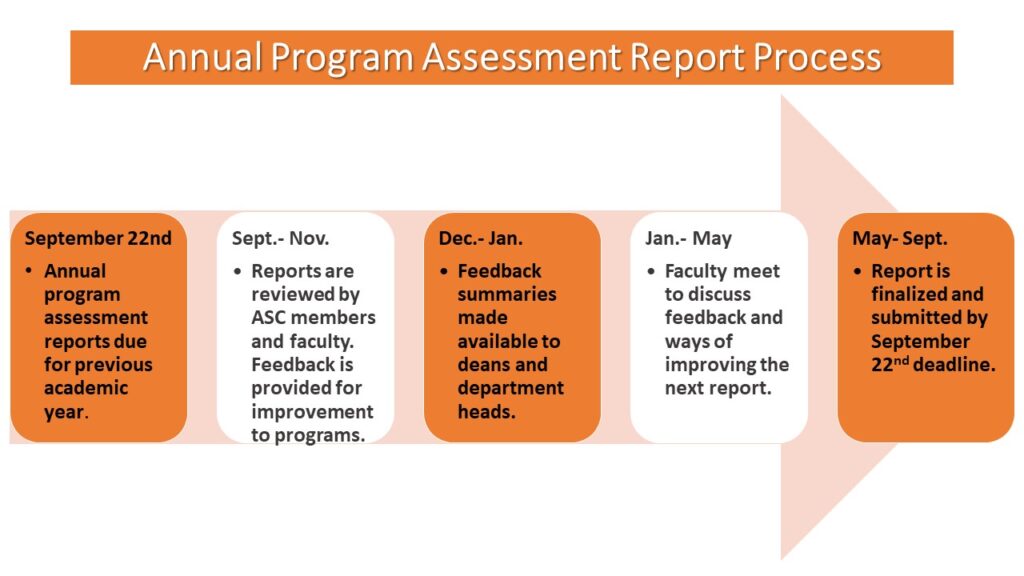The program assessment cycle at UTK consists of 6 steps in an iterative process. A brief explanation of each step can be found below the graphic.

Step 1: Faculty determine SMART student learning outcomes (specific, measurable, achievable, relevant, time-bound).
Step 2: Outcomes are mapped to the curriculum. In which courses does content for each outcome appear? To what extent does it appear (i.e., is the content introduced, reinforced, or mastered)?
Step 3: Methods to assess each outcome are identified, developed, or revised. Each outcome is required to have at least one direct method (i.e., work that students produce for evaluation).
Step 4: Data is collected and analyzed to determine if students meet the outcome benchmark set by the program. Additionally, programs examine relevant sub-areas to further identify where student learning could be improved.
Step 5: A plan to seek improvement in student learning is created based on analyzed results and faculty discussion.
Step 6: After changes are implemented, the effectiveness is evaluated. Did students’ learning improve? If so, did it meet the expected target? Are there further opportunities for growth? If learning improvement did not occur, what do faculty believe happened? And, how will they adjust for the next cycle?
Programs navigate this process throughout the academic year and submit a report detailing their findings and actions. The timeline for the reporting process is below.

Timeline/Deadlines
- September 22 – All Assessment Reports Due
- October 31 – All Assessment Report Reviews Complete
- November 30– Feedback Finalized and Disseminated to Programs
Assessment Resources
Guide to Program Assessment, 3rd Edition
Institutional Meta-Assessment Rubric
Top 10 Considerations When Writing & Reviewing an Assessment Report (March 2020)
Writing Clear Learning Outcomes
Certificate for Program Assessment Canvas Catalog course
Volunteer Core Course Assessment
Questions?
- For questions regarding programmatic assessment (e.g., writing outcomes, developing methods, etc.) please contact Ashley Charsha (acharsha@utk.edu)
- For assistance working with the Anthology Planning Module, please contact Ashley Browning (ashleyb@tennessee.edu).